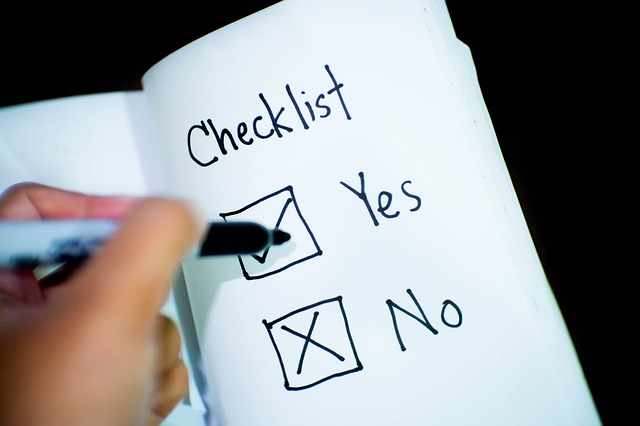Something happened in early 2021.
Various work studies showed that remote working helped many employees become more productive than before the pandemic.
As the year wore on, more findings emerged that revealed the actual cost of the productivity spike.
With many people spending most of their days on call, worrying about keeping their jobs and trying to keep their companies afloat, they spent far more time on professional pursuits than they did on personal matters.
It is important to distinguish between a professional and personal life here: a professional life involves work-related pursuits, while a personal life involves time spent with loved ones, hobbies, and self-care.
Let’s talk about what that means, including how to maintain a healthy work-life balance.
Disclaimer : The information provided in this site is for educational purposes only, and it is not a substitue for professional advice. The article may contain affiliate links. See the full disclaimer for more details.
What is a Personal Life?
Most people think about their personal lives in terms of time away from work. Personal life is almost always about spending time with friends and family, pursuing our interests, and pursuing goals that make us happy, connected, and content.
When the pandemic hit, many people stayed at home with little to do because they had not built a life outside of work.
It’s likely you feel the same way – that you’ve lost touch with one too many relationships, let your physical fitness slip, and let your mental health deteriorate over the years.
It’s not just you. That realization might also explain The Great Resignation, in which record numbers of employees quit their jobs between April 2021 and early 2022 in favor of more fulfilling opportunities.
What Is a Professional Life?
A professional life comprises the time you spend on career-related or job-related tasks and pursuits. They often require professional ethics when dealing with colleagues, clients, and mentors.
Oh, another thing.
Higher education, career workshops, team-building retreats, and online courses are all part of professional life.
You can also add the time you spend networking on LinkedIn and Twitter while lying in bed, riding the subway, or in an Uber.
The Difference Between Personal and Professional Life — The Elusive Work-Life Balance

According to NordVPN Teams, employees who work from home often work an extra 2.5 hours a day. An Adobe survey of over 5,500 employees across seven global regions found that more people used commute time to work, for example.
This is for people who were already working over 50 hours weekly—including people overworking in OECD countries – before Coronavirus hit. The respondents also said they were spending more time on their professional lives than on their personal lives.
As a result, 49% of respondents said their work-life balance suffered from mixing personal and professional lives.
They were always accessible at home, at odd hours, and whenever employees and business leaders needed their help, they responded to calls, emails, and other requests.
Some companies used surveillance software to monitor employee engagement remotely, which didn’t help ease the pressure to work.
As a result, an alarming number of employees began reporting burnout, stress, and depression by mid-2021. The Adobe study found that 1 in 2 enterprise workers and 3 in 5 SMB employees felt under pressure to respond to emails, calls, and work-related notifications, such as Slack alerts, after hours.
Microsoft records show increased emails, chats, and documents shared in 2021 compared to the same period in 2020.
As business owners struggled to keep their companies afloat, it affected their personal lives.
Are we headed for a future where the concept of work-life balance is a pipe dream and overwork is the norm?
Fortunately, what happened in 2020 and 2021 can remain there. You can nurture a fulfilling career and a rich personal life this year. The key to achieving this is maintaining a healthy work-life balance.
What is Work-Life Balance?
A healthy work-life balance means feeling in control of all of your various responsibilities in a way that ensures your well-being. To balance a personal and professional life does not mean you should spend the same amount of time at work and on relationships/hobbies.
It means that you do enough in each area to feel satisfied with the way your life is going.
That’s not always easy to accomplish, as you might appreciate.
A 2019 Mental Health at Work Report in the UK found that workload and pressure from employers had negative effects on the employees’ mental health. That’s before the pandemic. Clearly, balancing work and personal life before 2020 was difficult.
So why bother balancing something that seems so far gone? Is it even worth it to compartmentalize your life into personal and professional life?
Why Is It Important to Separate a Personal vs. Professional Life?

Keep your personal and professional lives separate to prevent problems in one area from spilling over and interfering with the other. You don’t have to let a bad day at work ruin your evening with family and friends, for instance.
Separating a professional and personal life can also help you realize you aren’t what you do. Having your identity tied to your work can become a source of stress when things go wrong at work.
Investing yourself deeply in your work can lead to your professional life taking over your happiness. The danger is you may have to do things that are detrimental to your well-being, like working long hours all the time to ensure happiness.
So, what are you to do about all of this?
You can make your personal and professional lives work for you by organizing them accordingly. Here’s how.
How Can You Improve Your Work-Life Balance?
A return to work is calling your name because you care about your career. Likewise, you want your relationships and hobbies to flourish as well. Where do you start?
Check out these 6 tips to balance your work and personal life this year, along with insights on what others are doing to improve their wellbeing.
1. Define your priorities
What’s important to you now and in the foreseeable future? Do you have something in mind you’ve wanted to do for several years but have not yet, that would bring you deep fulfillment?
Your priorities might have changed over the past two years–as many people did.
In addition, you might notice that your priorities have changed as you get older. For example, Baby Boomers prioritize more time with their families over more vacation, as do Gen Xers and Millenials.
It is best to choose what to devote your time to when you want to focus on growing in the most important areas for you.
2. Take the hybrid approach instead
You may want to consider working remotely and in person rather than working at home full-time.
It is easier for some people to balance their work and personal lives when they can work in person and return home afterward. That is fine. In such a case, negotiating to work from home a single day a week could be a good start for you.
Some may prefer to continue working from home for several more days. That is fine too. Try discussing this with your leaders to see if you can agree upon it.
Remember that you may need to start job hunting to see if you can get a partially remote or fully remote role if your company’s return-to-work plans don’t support that.
3. Remember where to draw the line

Set manageable daily goals.
As Jim Collins once said, “if you have more than three priorities, then you don’t have any”.
The lighter your schedule, the less likely you are to multitask. If you can, keep your to-do list at around three items.
You will focus better, maximize creativity, and avoid burnout.
4. Remember, you are not your job
About 45% of Americans believe they are workaholics.
But here’s the kicker.
Many people use that term as if it were a badge of honor. It’s not.
Why is that?
This is because 77% of American full-time workers say they’ve been burnt out at their job.
A life outside of work can help you take your mind off of work, discover other skills besides job-related skills, and connect with people you care for.
As a bonus, you could develop your personal life as a method of unwinding from work, allowing you to be more productive the next day.
5. Reach out for help before it is too late
Picture this.
Sixty-eight percent of Gen Xers and 81% of Millenials have left their jobs for mental health reasons. This includes people who left voluntarily and those who left involuntarily.
Executives and middle-level respondents also reported at least one mental health symptom.
You don’t want to lose the very job you worked so hard to keep. So, speaking up can save your professional life while you enjoy a sabbatical in your personal one.
6. Invest time to discover your purpose in life

If you work for a higher purpose than just earning a living the whole work-life issue becomes less of a concern.
That doesn’t mean you would not need to manage your schedule wisely. But by working in a meaningful career the work-life balance would be a lot more intuitive. When you feel satisfied and shine from what you do then the everyday challenges become just little things you need to handle.
Do you have any experience doing something larger than yourself? If so, did it make a difference to other people?
Now, how did that make you feel?
Here’s the thing.
Finding your purpose in life involves doing more of what brings you deep happiness while improving the lives of others.
It’s not just that having a purpose can help you spend more time with people who share your values, but assisting others to improve their lives can also boost your mental health.
You can develop your hobbies, passions, and life purpose by volunteering, doing acts of kindness, and contributing to a cause.
You can also start exploring your purpose here, with these self-discovery tools. These had helped me to define a balanced, meaningful life for me after years as an autopilot, frustrated employee.
Shachar is a blogger and sensitive person who worked in a recruitment company and holds a master’s degree in sociology. After years of struggles to find purpose, he made this blog to help others find their purpose more efficiently. He likes to play chess, walk in nature, and take photos in his free time.


